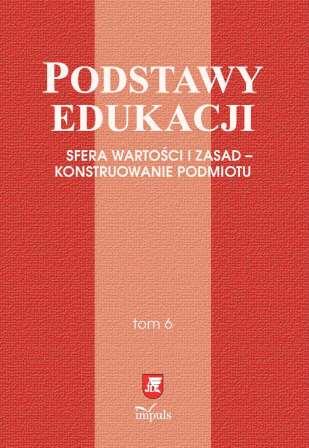Abstrakt
W artykule autor skupia uwagę na roli dialogu we współczesnym procesie edukacji. Warto zapytać, czy obecna edukacja nadal sprzyja dialogicznej relacji między ludźmi. Dialog jest najbardziej naturalną formą kontaktów między ludźmi i pozostaje starożytną relacją mistrza do ucznia. Jakie elementy prawdziwego dialogu są kontynuowane we współczesnej edukacji? Wydaje się, że obecny proces edukacji na różnych poziomach utracił relacje dialogowe. Edukacja w XXI w. promuje krótkotrwałe kontakty. Są to relacje bez dwustronnej odpowiedzialności. Nowoczesne technologie tworzą możliwości relacji nowego rodzaju, które są bardzo często używane w przestrzeni edukacyjnej. Główne pytanie tekstu brzmi: Czy nowa sieć komunikacyjna jest w stanie zastąpić prawdziwy dialog interpersonalny? Jeżeli pada odpowiedź „tak”, to powinniśmy zastanowić się nad konsekwencjami takiego stanu rzeczy.
Bibliografia
Bauman, Z. (2007), Tożsamość. Rozmowy z Benedetto Vecchim. J. Łaszcz (tłum.). Gdańsk.
Bauman, Z. (2012), To nie jest dziennik. M. Zawadzka (tłum.). Kraków.
Brzozowski, T.T. (2013). Charakter wiedzy jako podstawowego czynnika rozwoju sektorów przemysłu i usług. Prace Komisji Geografii i Przemysłu Polskiego Towarzystwa Geograficznego, 21.
Buber, M. (1992), Ja i Ty. Wybór pism filozoficznych. J. Doktór (tłum.). Warszawa.
Dylus, A. (2005), Globalizacja. Refl eksje etyczne. Wrocław.
Gogacz, M. (1985), Człowiek i jego reakcje, Lublin.
Karpiński, P. (2013), Fides et Ratio. Kwartalnik Naukowy, 1.
Levinas, E. (2002), Całość i nieskończoność. Esej o zewnętrzności. M. Kowalska (tłum.). Warszawa.
Lyotard, J.F. (1997), Kondycja ponowoczesna. M. Kowalska, J. Migasiński (tłum.). Warszawa.
Ritzer, G. (2012), Magiczny świat konsumpcji. L. Stawowy (tłum.). Warszawa.
Sanchez, R. (1997), Colleges Turning Virtual Classrooms into a Reality. Washington Post, 27.03.
Sennett, R. (2012), Szacunek w świecie nierówności. J. Dzieżgowski (tłum.). Warszawa.
Steiner, G. (2003), Nauki mistrzów. J. Łoziński (tłum.). Poznań.
Śnieżyński M. (2005), Sztuka dialogu. Teoretyczne założenia a szkolna rzeczywistość. Kraków.
Taylor, Ch. (2002), Etyka autentyczności. A. Pawelec (tłum.). Kraków.
Taylor, Ch. (2012), Źródła podmiotowości. Narodziny tożsamości nowoczesnej. M. Gruszczyński, O. Latek, A. Lipszyc, A. Michalak, A. Rostkowska, M. Rychter, Ł. Sommer (tłum.). Warszawa.
Wal, J. (1998), Vademecum dialogu, Kraków.
Vattimo G. (2006), Społeczeństwo przejrzyste. M. Kamińska (tłum.). Wrocław.
http://wiadomosci.onet.pl/regionalne/lodz/gazeta-wyborcza-profesorowie-ida-na-bruk,1,5451731,region-wiadomosc.html (23.03.2013).
http://wiadomosci.onet.pl/swiat/usa-harvard-oferuje-wyklady-w-internecie, 1,5440796,wiadomosc.html (13.03.2013).
http://wiadomosci.onet.pl/wideo/to-jeden-z-najczarniejszych-okresow-w-historii- pol,123591,w.html (23.03.2013).
OŚWIADCZENIE AUTORA:
Mam świadomość, że czasopismo jest wydawane na licencji Creative Commons - Uznanie autorstwa (https://creativecommons.org/licenses/by/4.0/legalcode).
Przesyłając artykuł wyrażam zgodę na jego udostępnienie na tej licencji.
